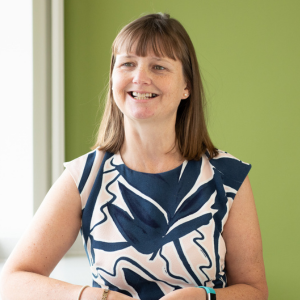The first prototype farmer cluster was started ten years ago by a group of Wiltshire farmers in partnership with the Game & Wildlife Conservation Group and the county council to form the Marlborough Downs Nature Improvement Area programme.
Since 2014 this model has been replicated across England and Wales, with the express intention of initiating farmer-led programmes to improve and conserve the rural environment by pooling local knowledge and resources. These groups have traditionally worked alongside conservation specialists whose professional knowledge helps to inform priorities and provide practical advice, including securing grant funding.
The Arden Farm Network, the first Warwickshire cluster, has been working with independent Farm Environment Adviser, Zoe Bell, and Ian Jelley of the Warwickshire Wildlife Trust since 2018 and is supported by the Warwickshire Rural Hub. The network has grown from an initial handful of farmers to over 46 covering 9,500 hectares. Although funding for the group has come from a number of providers, the principal source has been the Natural England Facilitation Fund (which is shortly coming to an end). Other sources for funding have included Tesco (barn owl boxes) and Severn Trent (tree sparrows).
Such has been the success of the Arden group that the Warwickshire Rural Hub, working with Zoe, is in the early stages of establishing two more groups: the Upper Avon and Leam Catchment, and South Warwickshire. Both these groups are farmer-led with the stated intention of supporting on-farm environmental work by helping farmers to:
- optimise habitat management
- access further funding for landscape scale conservation projects e.g. hay meadow restoration
- transition from BPS to ELMS
- achieve net zero agriculture
These cluster groups have several significant advantages. First, both the farmers and the local advisers know the conditions on the ground, understand the constraints and know what type of project is likely to produce results. Second, they are social groups, encouraging collaboration, discussion of best practice, and general support in both launching and maintaining on-farm initiatives. Zoe believes that these collaborative approaches are particularly valuable for counties like Warwickshire which often miss out on pots of funding. As she points out: “Warwickshire doesn’t fit neatly into any one category and it only has a very small area of high priority landscape. We want Warwickshire farmers to have a voice and working at landscape scale will hopefully offer more ways into the new funding streams.”
As the debate around transition feels increasingly polarised between conservation and food production, counties like Warwickshire can feel marginalised, meaning that finding adequate funding can be a significant challenge. Despite farmer cluster groups being perfectly placed to take advantage of the Tier 2 ELMs Nature Recovery Scheme, Defra still has to release details on how projects identified under this tier will be funded. This lack of clarity was highlighted by the December 2021 Public Accounts Committee report on ELMs which noted that the department was guilty of ‘blind optimism’. The success of ELMs depends on farmer engagement but without detail on how the scheme will be implemented or funded, it is difficult to see how farmers can plan ahead. Some landowners are already taking advantage of private sector schemes, such as biodiversity offsetting, and Defra is encouraging take up of carbon sequestration schemes, for instance the Woodland Carbon Trust. As Zoe noted, Warwickshire’s extensive permanent pasture and hedgerows provide permanent carbon storage, and this needs to be recognised – and monetised - as a valuable commodity if farmers are not to be financially disadvantaged once the BPS is withdrawn.
Anyone interested in more information about any of the Warwickshire cluster groups, to find out what events are planned, or to become a member, is encouraged to contact Jane Hampson at the Warwickshire Rural Hub (info@ruralhub.org.uk).




